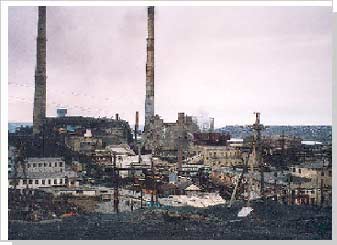 Because of the nature of work and environment, metal casting industry is often pressurized for polluting the environment. Some of the environmental issues associated with the industry are – emission of harmful and poisonous gases, dust and particles and generation of waste pollutants.
Because of the nature of work and environment, metal casting industry is often pressurized for polluting the environment. Some of the environmental issues associated with the industry are – emission of harmful and poisonous gases, dust and particles and generation of waste pollutants.
The government and metal casting industry associations have setup several norms and guidelines to help the industry fight pollution by controlling emissions and proper disposal of pollutants. Several environmental legislations have been presented by the government that now have a significant impact on the way that foundries conduct their business. It is crucial for the companies to be aware of different legislations that apply to their business and the actions that are required to ensure compliance.
Environmental IssuesSome of the important environmental issues associated with the metal casting industry are -
Foundry WasteFoundry waste is an area that has important priority within the global foundry industry from both the environmental point of view as well as economic point of view.
The waste products generated by the foundries relate directly to the type of metal, furnace type and the molding technology being employed. For instance – foundries, which use sand molds produce the most waste from sand. Non-ferrous and steel foundries may generate harmful waste because of the lead, zinc, cadmium and other metals present in the waste. Cupola furnaces cause more air pollution than induction furnaces because of the use of coke and sand castings generate more solid waste than permanent molds due to the sand fines, which cannot be reused.
In terms of volume, gaseous waste is the largest source from foundries. Some other type of waste products generated by foundries include – liquid emissions, solid waste – sand waste, investment casting waste, cleaning room waste and slag wastes.
To help reduce foundry waste, industry associations are working on ways to
- Develop processes to reduce the amount of waste.
- Develop techniques for the treatment of waste resulting in higher recycling in the foundries.
- Develop policies to reduce toxicity allowing the waste to be used as raw material in other industrial processes.
Hazardous Air Pollutants
Hazardous Air pollutants (HAPS) include gases, which are generated when molds containing carbon materials are subjected to high temperatures as happens in the pouring of cast metals. It include both chemically bonded as well as green sand molds. Of all the hazardous air pollutants released from poured castings, benzene is the largest.
The Occupational Safety and Health Administration (OSHA) has allowed an exposure limit of 1 part of benzene per million parts of air (1 ppm) in the workplace during an eight-hour work day. According to Department of Health and Human Services (DHHS), benzene is a known human carcinogen, the long exposure of which may cause leukemia.
Industry organizations are working on ways to reduce the hazardous benzene emission from the pouring of molds.
Environmental Management SystemAn Environmental Management System (EMS) can be defined as a set of processes, which enable a foundry to cut down its environmental impacts and improve its operational efficiency. Organizations adopt EMS to take proactive steps to ensure environmental compliance while cutting costs, ensuring the participation of management in environmental decision-making, and improving internal and external communications.
EMS is designed on planning, doing, checking and acting model and results in continual improvement based upon -
Planning – Includes planning and identifying environmental aspects and prioritizing goals.
Doing - Includes implementation through training and operational controls.
Checking - Includes monitoring, regulating and taking corrective measures.
Acting - Includes reviewing, making progress reviews and acting to make required changes to the EMS.
Some of the advantages of EMS are -
- Reduces operating costs
- Enhances environmental performance and efficiency
- Improves internal and external communication
- Improves environmental decision-making
- Enhances the image of organization
Environmental Technologies -
It includes making use of sophisticated technologies and processes to improve performance and efficiency of metal casting facilities through proper waste management, reduce foundry emissions, reuse of waste materials and environmental compliance. It includes use of latest technology for -
- Waste Characterization
- Modeling
- Waste Utilization
- Waste Reduction Process
- Waste Reduction materials
Policies to Fight Pollution
As like with other heavy industries, metal casting companies typically have programmes and policies in place to reduce plant emissions and effluents, conserve energy and eliminate unnecessary scrap. Many companies are working on the applications to develop products that help reduce waste, minimize negative environmental impact and enhance process efficiency through 'right-first-time' production.
In several nations, legislation and corporate risk management programs have placed controls or outright bans on materials, which conventionally have been part of foundry consumables.
AdvantagesImproved performance on environmental aspects, provides metal casting industry several advantages, including -
- Less chances of environmental fines and prosecutions
- A better image in the community
- Long term cost savings
- Less negative environmental impact
Non-compliance with the environmental guidelines and legislation may attract the government interference, fine and prosecutions and may badly affect the business, employees, customers and the local community. It may also result in bad effects on health, safety, the image of company, financial performance and the quality of life.
